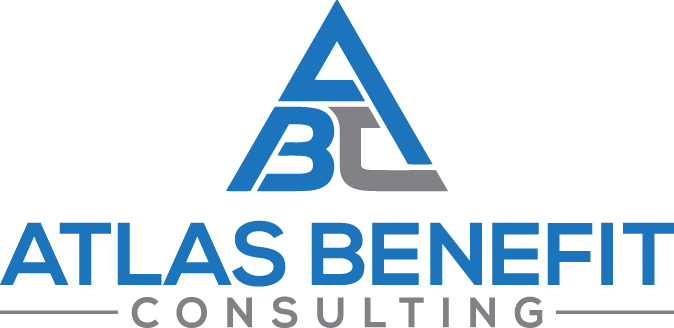Gastroesophageal Reflux Disease, called GERD, is a common gastrointestinal condition. Cleveland Clinic reports than an estimated 20% of the US population have GERD. It is sometimes referred to as chronic acid reflux.
Gastroesophageal Reflux Disease Symptoms
Here are some common symptoms:
- Heartburn
- Indigestion
- Pain in the chest
- Difficulty swallowing/feels like something is “stuck” in the back of your throat
- Chronic bad breathe/sour taste in the mouth
- Dry cough
- Wheezing
- Nausea/vomiting
- Bile regurgitation
What Causes Acid Reflux & Gastroesophageal Reflux Disease?
Acid reflux occurs when the valve at the lowest end of your esophagus, called the esophageal sphincter, doesn’t close the right way. This allows acid from your stomach contents to travel up into your esophagus, and even into your throat and mouth at times. Other conditions, such as gastroparesis (slow emptying of the stomach), may cause GERD as a secondary condition. Pressure on the abdomen (from obesity, pregnancy, bending over often, a disability that causes more of a bent stature, etc) can also increase the likelihood of GERD.
Other factors that can increase the risk of suffering from GERD:
- Age 40 or older
- Obesity
- Pregnancy
- Hiatal Hernia (bulging in the stomach)
- Smoking and tobacco use
- Alcohol use
- Taking medications that can weaken or relax the esophageal sphincter muscles, including: Antibiotics, potassium or iron pills, ibuprofen, some medicines for asthma, allergies, high blood pressure, depressants, sedatives, and more
Service-Connection & Ratings
GERD does not have its own rating criteria with the VA. As with other conditions that do not have their own diagnostic code within the VA Schedule for Rating Disabilities, it’s rated as analogous. This means it will be rated based on the condition, symptoms, or disability it most closely resembles or is connected to. Hiatal Hernia is the most common condition to which the VA rates GERD analogously.
- Direct basis- Veterans will need a current diagnosis, an in-service event, injury, sickness, or symptom, and a medical nexus linking the conditions to an in-service occurrence.
- Secondary service connection– Hernias and COPD may both be connected easily to GERD. Other times, GERD can present due to medications the veteran is taking for other conditions, such as migraines, insomnia/sleep apnea, and PTSD.
Understand more about your service-connected benefits!
GERD Ratings are as follows:
(typically rated under hiatal hernia, diagnostic code 7346)
60%
- Pain
- Vomiting
- Weight loss
- Hematemesis (vomiting blood)
- Melena (blood in bowel movements)
- Moderate anemia (documentation must be provided for hemoglobin and hematocrit numbers, from a physician)
- Combination of symptoms that cause severe impairment of health
30%
- Persistent recurrent epigastric distress
- Dysphagia (difficulty swallowing)
- Pyrosis (heartburn)
- Regurgitation (bile/acid coming up into the throat and mouth)
- Pain below the sternum (chest bone), arm pain OR shoulder pain
- Symptoms considerably impair health
10%
- With 2 or more symptoms of the 30% rating category of less severity
It can be beneficial to both the veteran, and medical provider, if the veteran keeps a log of daily GERD symptoms and their severity. This can be done on paper or typed up. Keeping a food diary can also help the veteran and medical provider pinpoint trigger foods.
Ways to Help Alleviate GERD symptoms
- Avoid trigger foods, which for many are:
- Spicy
- Fried
- Fatty
- Dairy
- Chocolate
- Caffeine
- Alcohol
- Acidic, such as tomatoes and citrus
- Onions and garlic
2. If overweight, add some daily physical activity into your routine if possible. Try to achieve a healthier weight, as obesity increases the risk of of GERD and its symptoms.
3. Cut back or eliminate alcohol consumption and stop smoking
4. Eat smaller meals more frequently through the day. Eating 2-3 large meals a day can increase symptoms.
5. Sit upright and stay upright for an hour after eating whenever possible. Avoid reclining or lying down after eating.
6. Avoid clothing or belts that are tight in the stomach area. Pressure on the stomach can flare symptoms and make things worse.
7. Consider raising the head of your bed a few inches if you are in pain or symptoms increase while sleeping.
Gastroesophageal Reflux Disease Resources
Apps for your Phone:
- GERD Tools, $4.99 Apple store
- Acid Reflux Diet Help, free on google play
Keep Learning:
- Visit the VA’s page on Gastroesophageal Reflux disease here.
- Download the PDF on the VA page for additional information and resources!
- The International Foundation for Functional Gastrointestinal Disorders has a website with a lot of information and resources.
How Can Atlas Benefit Consulting Help You?
Many veterans are not getting the maximum ratings and benefits they have earned and deserve! Contact an experienced, helpful member of our team for a free consult.
Click Here for Info on Your Free Consultation
